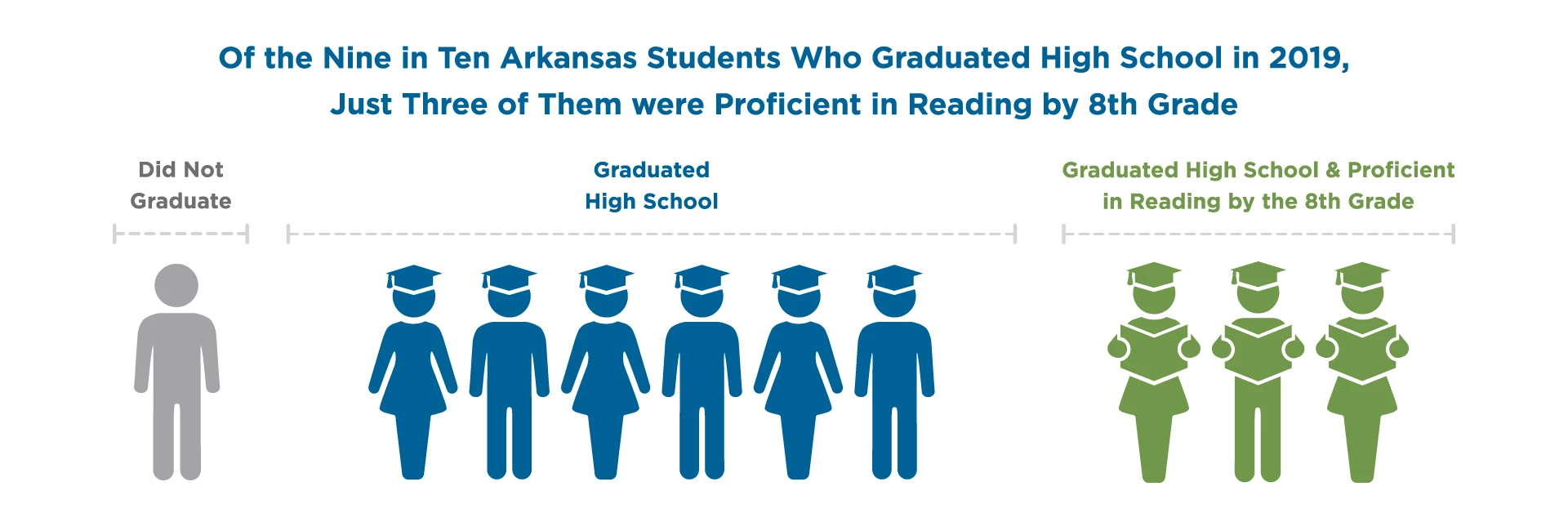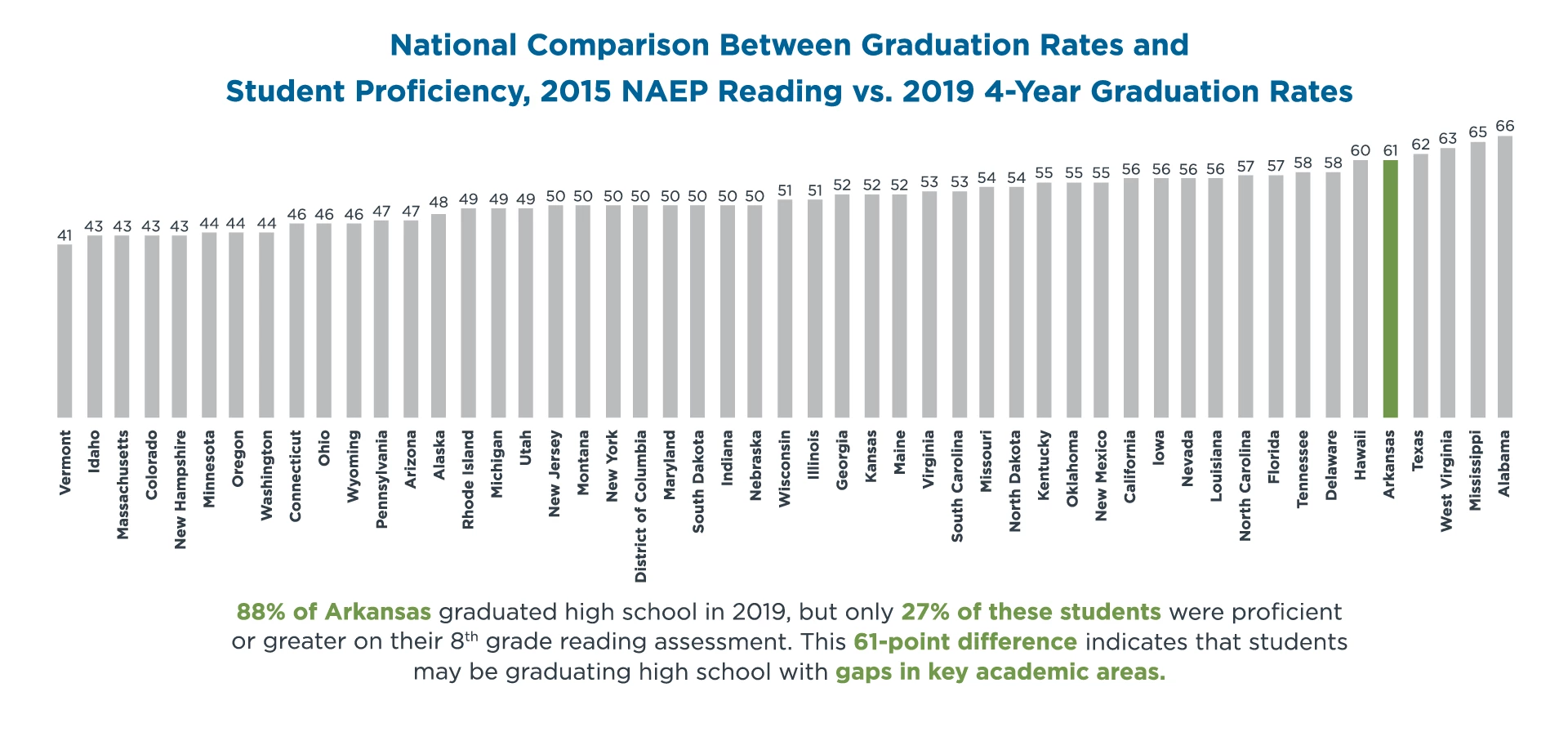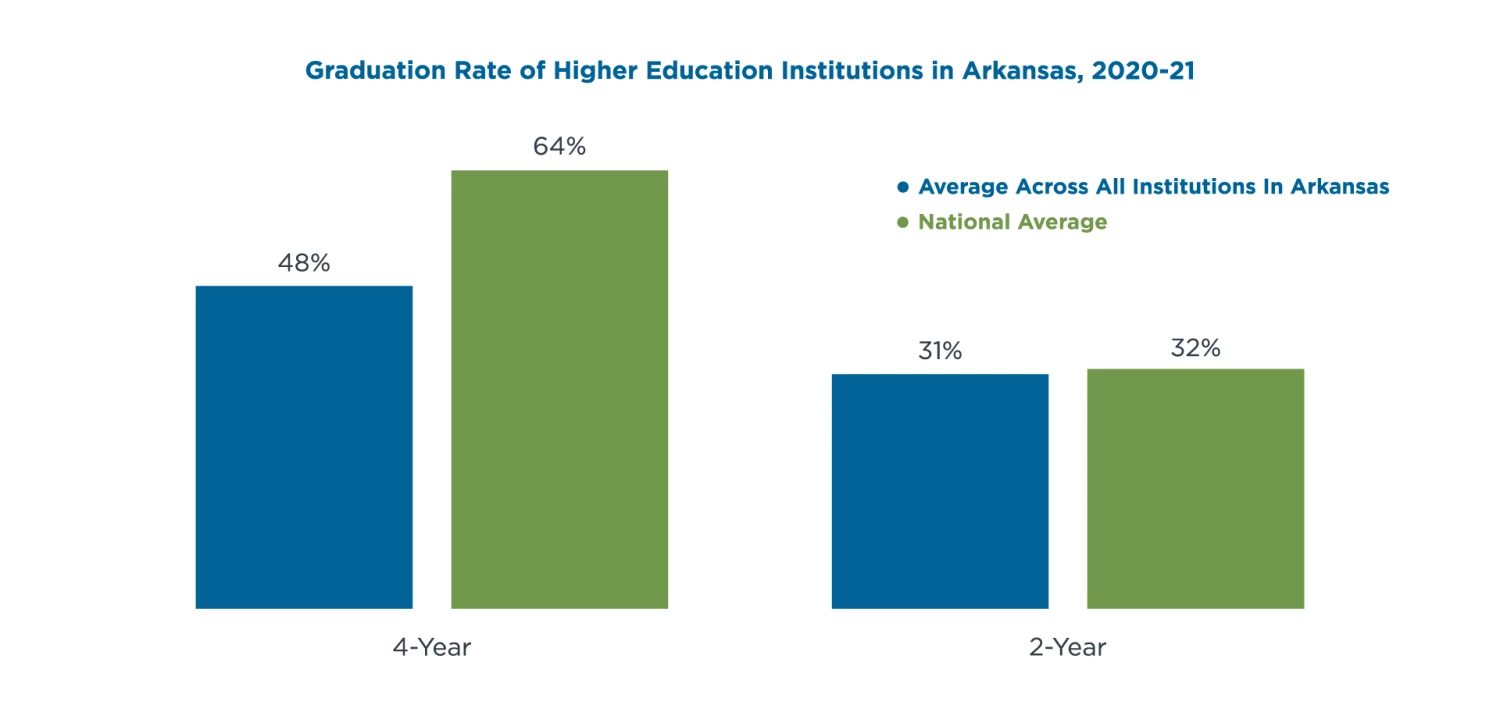Throughout this process, Arkansans vocalized common thoughts and feelings about education in their state – that students are not being adequately prepared for the high-demand jobs of today or of the future. If the state’s academic trends persist, this will have implications for Arkansas’s economic prospects.
Students are graduating high school without the skills they need
While the state has made strides in supporting students to graduation, these high graduation rates may mask persistent gaps in student academic proficiency. In 2018-19, 88% of Arkansas students graduated from high school. However, of the nine in ten Arkansas students who graduated high school, just three of them were proficient in reading by 8th grade, suggesting that students are graduating with significant gaps in key academic areas.

An analysis of high school graduation rates for the class of 2019 compared to their reading proficiency rates in the 8th grade (2014-15) reveals the 5th biggest gap in the country between graduation and academic proficiency. This gap is similar regarding graduation and math proficiency.

In community focus groups across the state, parents and other community members repeatedly expressed that their kids are not developing essential life or durable skills, such as critical thinking and communication, that are necessary to become independent and productive members of today’s economy and society.
These sentiments were reinforced in conversations with leaders in the Arkansas business community. In an Arkansas State Chamber of Commerce report “Arkansas Advantage 2030,” the business community emphasizes significant gaps in both the core (e.g., reading and writing) and durable skills of emerging employees.
Over 50% of Arkansas high school graduates go to 2 or 4-year colleges, but only half of those complete their program and receive a degree or credential.

